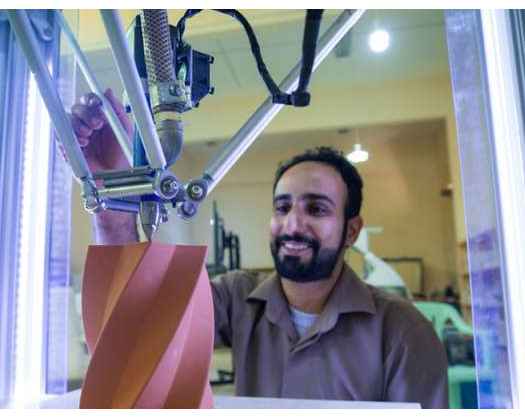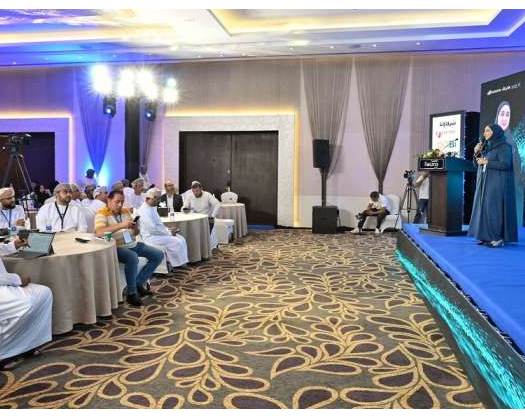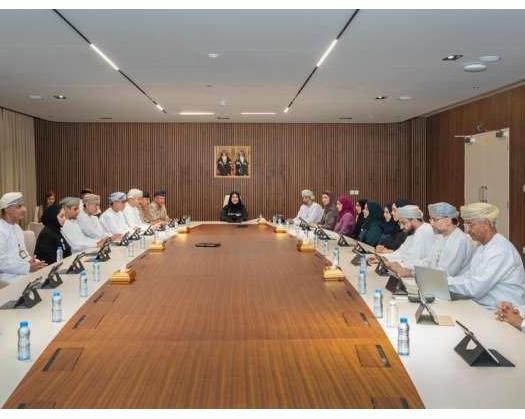Muscat: Small and medium-sized enterprises (SMEs) in Oman are experiencing fast changes in the areas of digitisation and innovation.
The incorporation of digital technology with an creative approach is a crucial component in allowing these firms to attain long-term growth and improve their competitiveness in domestic and global markets.
Digital technologies provide useful resources for boosting operational efficiency, broadening customer bases, and driving innovation in product and service delivery.
They also help to promote creative thinking in terms of building flexible company strategies, exploring new regions, and better meeting consumer demands.
As a result, digitizing and innovation are critical strategies for SMEs to keep up with changes and help them grow, expand, and compete in a fast changing economic landscape.
Sajd Juma Al Salti, a digital transformation consultant, told Oman News Agency (ONA) that digitization and innovation are critical elements in improving SMEs' competitiveness, notably in light of the rapid technological transformation occurring across industries.
He emphasized that digitization is more than just technology adoption; it is a full transition to improve processes, broaden markets, and foster continuous innovation, allowing firms to adapt and flourish in a dynamic business climate. It is critical for SMEs to expand into new markets by adopting modern technologies such as e-commerce and digital solutions.
Al Salti said that these businesses may grow their operations and reach local and foreign markets without making big investments in traditional infrastructure, adding that digitization allows firms to reach consumers rapidly and easily, creating up new opportunities for development and expansion.
He emphasized that technology advancements help to improve operational efficiency and reduce costs, which are critical for SMEs trying to succeed in a competitive environment.
Using technologies such as artificial intelligence and big data analytics, these firms may optimize their internal processes, increasing their capacity to make better and faster decisions.
As a result, these firms will be able to enhance their local and global competitiveness while striving for excellence in enhancing the quality of their products and services, he said.
Maha Mohammed Al Habsi, an artificial intelligence trainer, stated that artificial intelligence and other new technologies such as cloud computing, blockchain, and the Internet of Things are critical instruments for enabling SMEs to achieve sustainable growth and extend into new regions.
She noted that this tendency is no longer a luxury or a prospective choice, but an unavoidable requirement in an economic climate that demands flexibility, efficiency, and the ability to keep up with quick change.
She stated that several small firms in the Sultanate of Oman have begun investigating these technologies in order to improve operational efficiency and save operational expenses.
Ishaq Hilal Al Sharyani, a trainer and qualifier of entrepreneurs, said that despite the tremendous potential offered by digital transformation, SMEs encounter real hurdles in embracing it, including restricted financial and technical resources, a shortage of specialist digital knowledge, and resistance to change within certain administrative organizations.
Al Sharyani stated that cybersecurity and data security provide additional hurdles to a complete transition to digitization.
To address these issues, he stated that firms must create complete strategies that include ongoing personnel training, seeking digital advice, increasing collaboration with emerging technology enterprises, and taking advantage of government programs that support entrepreneurship. He emphasized that these measures allow firms to invest in digital infrastructure and realize the full benefits of digital transformation.
He stated that digital transformation offers SMEs a genuine opportunity to improve their competitiveness and innovation, allowing them to contribute more to the national economy and put them on a long-term growth trajectory in today's corporate environment.
Meanwhile, legal adviser Mazen Salim Al Zidi believes that laws have contributed significantly to the development and success of small and medium-sized businesses.
Examples include the passing of the Law on Simplifying Litigation in certain types of cases, such as commercial conflicts involving international investment, rental conflicts, labour disputes in the private sector, construction disputes, and disputes involving documents that acknowledge debt.
According to him, this legislation has helped expedite labor and adjudicate cases that frequently originate from SMEs and firms with foreign investment.













